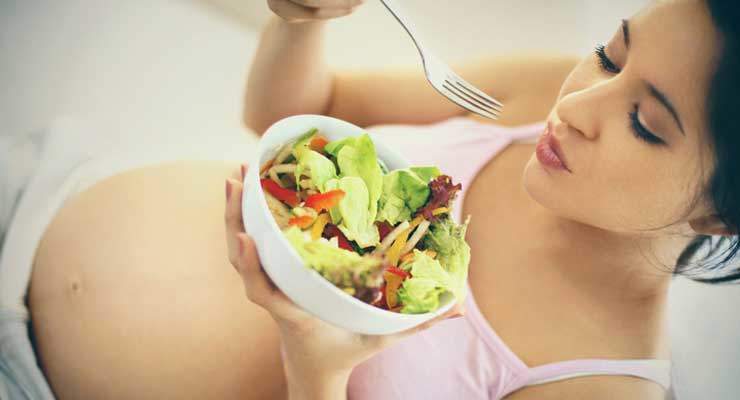To support the growth of your baby, you need to eat healthy, but sometimes your body throws you a curve ball, making it difficult. You may find yourself craving milkshakes and cheeseburgers instead of your usual nutritious fare. Other times, you may not want to eat at all. Though you may experience trouble eating during pregnancy, it’s important to find ways for you to keep yourself healthy.
Trouble Eating During Pregnancy
Your baby needs calories and good nutrition to grow properly. If you aren’t eating right, you run the risk of hurting your baby. Additionally, your eating habits during pregnancy will affect the amount of weight that you gain, which can affect your post-pregnancy body. No matter the reason for having problems eating, you need to find ways to get the nutrition that you need.
Causes
Morning sickness is one of the biggest causes of eating problems during pregnancy. It lasts from about week 6 to week 16 and can cause vomiting or a persistent nausea that makes eating difficult. During pregnancy, various hormones can cause you to find foods that you formerly loved revolting. You may also find that your busy lifestyle combined with pregnancy makes it difficult to prepare nutritious meals and fit in time to eat them.
Solutions
You can quiet your morning sickness symptoms by eating small meals frequently. There are also lollipops and vitamins that supposedly help reduce nausea from morning sickness. Eating becomes easier when you prepare foods in advance and save them in ready-to-go packages. Keeping fruit or sliced vegetables on hand, for example, means that you’ll always have something healthy to eat when you get hungry.
Cravings and Aversions
Food cravings and aversions can also bring trouble during pregnancy. If you find that healthy foods you previously liked don’t seem appealing, try looking for substitutes, such as turning to spinach for calcium, rather than milk or yogurt. You can indulge some of your food cravings, but if they are not healthy, take care to incorporate other healthy foods into your diet as well.
Warning
Some women experience hyperemesis gravidarum, which is an extreme form of morning sickness. Women with this disease are frequently vomiting and may be unable to keep any food down. If you think that you may have this problem, discuss it with your doctor. You may need to receive nutrition through an IV for the safety of you and your baby.





